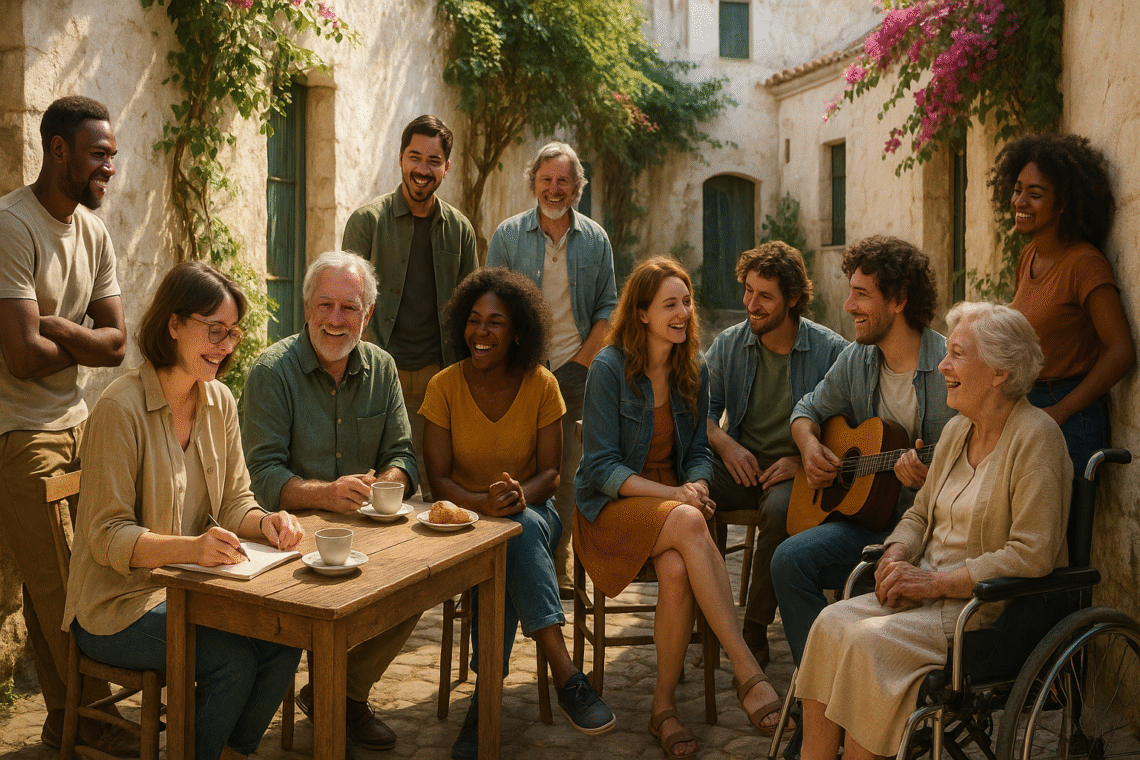We moderns are not particularly patient. The world around us insists that everything should happen now, or better yet, yesterday. Our devices answer our questions before we have finished asking them, our delivery services arrive with our purchases before we have properly decided if we wanted them, and our conversations are measured in the brevity of characters, not the depth of hours. Somewhere in all of this, the ancient art of waiting has been mislaid.
Yet slow time, time that unfolds with the gentle inevitability of a tide,has its own peculiar dignity. It does not apologise for its pace. It is not in a hurry to gratify us. It is the tempo of seasons ripening, of friendships maturing, of the soul slowly recognising the contours of truth.
I think of the farmer, watching the orchard through a year. First comes the delicate froth of blossom, then the patient swelling of fruit, then the quiet weeks when nothing seems to change at all. Yet inside each apple, sugars gather, flavours deepen, and the seed’s story is quietly written. Nothing of this could be hurried without loss. It is the same with our own becoming,what happens too quickly often arrives incomplete.
We fear slow time because it refuses to be mastered. To submit to it is to admit that we are not in control, that there are rhythms older and wiser than our own clever schedules. This is uncomfortable for a species that likes to measure its life in productivity. And yet, if we have the courage to yield, we may find that slowness teaches us the rarest of virtues: patience, which is not mere endurance, but the ability to inhabit the present without anxiety about the outcome.
I suspect heaven, if it is anything at all, will have very little of our clockwork in it. It will be something more like a long afternoon on a quiet terrace, the air fragrant with jasmine, the conversation unhurried, the sunlight lingering as if it had nowhere more important to be. Time there will not be abolished; it will simply be freed from the tyranny of haste.
Perhaps our task now is to begin living that way in small and stubborn ways. To brew the tea without glancing at the phone. To linger over the walk to the postbox. To listen to a friend without mentally rehearsing our reply. These are minor acts of resistance against the culture of speed, and they require nothing more than our willingness to stay present.
Slow time will not make us more efficient. It will make us more human. And that, in the end, is the better bargain.
This week, choose one daily task and perform it without haste,simply for the sake of doing it well. Notice how your mind resists. Notice how your breathing changes. And in that gentle resistance, remember: the world is older than your urgency, and its deepest truths take their time to arrive.





